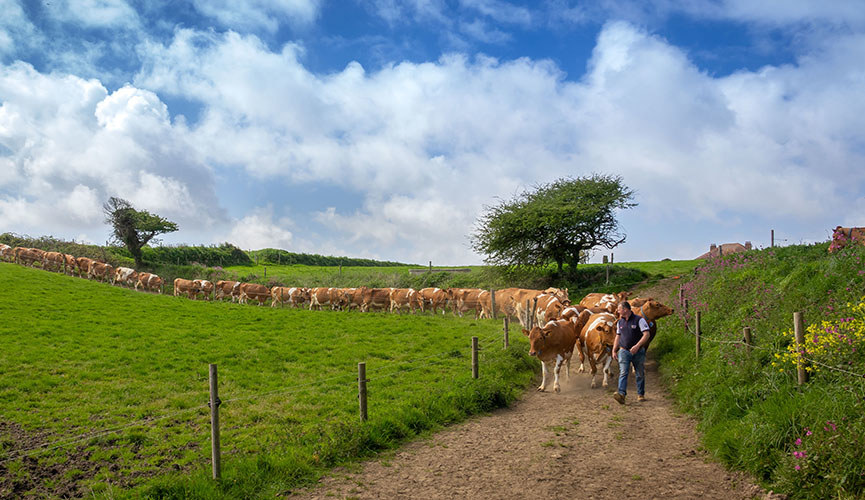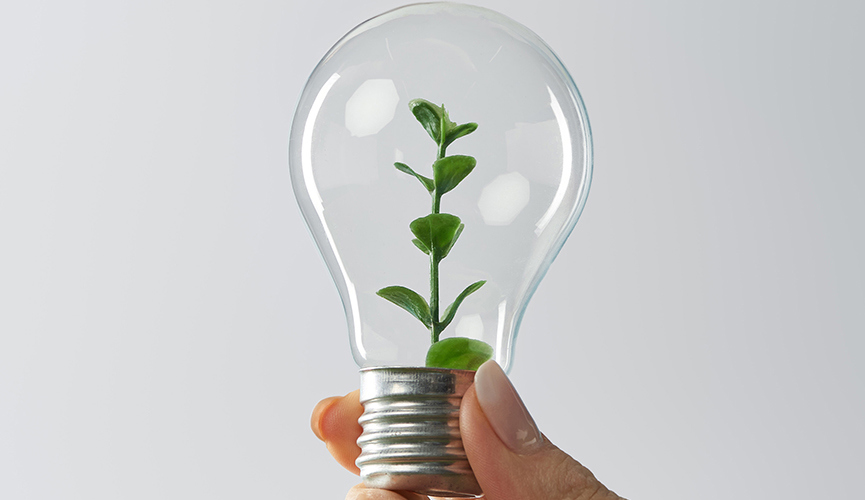Ethical Decision Making Tool
Throughout this blueprint you will notice our compass icon. This is our reminder that making ethical business decisions is at the heart of what we do. Coops were founded as an ethical retail movement and that’s more important today than at any time in our history.

The Channel Islands Coop's Compass icon
The compass is the symbol of our Ethical Decision-Making Tool (EDMT), which is an approach to management that sits alongside our financial, risk and compliance decision making processes.
When you are running a business, every single decision has an ethical component (just as nearly every decision has a financial component). It would clearly not be business-like for us to make decisions without doing the financial analysis first. Similarly, it would not be good business for us to make any decision without doing the ethical analysis before acting.
How does it work.
Our EDMT has several layers, which get more detailed as you progress further. It may be that on any particular decision, you can stop after one or two layers as it will have become clear what the ethical imperative is and how it balances with other worthy aims.
The one question.
At the top layer our EDMT has one simple question; “Is this the right thing to do?” It is important to start with this one, even if we are going to go down to more complex questions before we come back up to this one. When we ask ourselves ‘is this the right thing to do?’ we create a pause in our thinking process that enables us to reflect on our purpose and values. Often, we will feel or intuit the answer before we think through the logical reasoning.
The next layer.
The next layer of our EDMT asks the question “How is it good for...” We generally ask this in four different ways:
- How is this good for our members and the communities (places) in which they live?
- How is this good for our planet?
- How is this good for our own people?
- How is this good for our partners in business?
When we are thinking about these four good questions, it’s often useful to jot down some positive and negative points addressing each question.
Good for communities
+ Does the idea deliver good food at honest prices?
+ Does it meet Islander’s real needs?
+ Is it inclusive of the diverse breadth of our community?
- Does it contribute towards an unhealthy lifestyle?
- Is it something that people would rather avoid?
- Is it consistent with the things our members want us to do?
Good for our planet
+ Does the idea decrease our usage of electricity or hydrocarbon fuel?
+ Does it decrease our use of plastics, especially single-use packaging?
+ Does it contribute towards our goal of reducing food waste?
- Does it generate an ecological impact out of proportion to its gain?
- Does it take out from the natural environment more than it puts back?
- Is it consistent with our commitment to reach net zero?
Good for our people
+ Does the idea increase the wellbeing of our people?
+ Will it contribute towards a culture which is Caring, Helpful, Positive and embracing Togetherness?
+ Does it generate a positive sense of purpose among our colleagues?
- Is it divisive, rather than inclusive?
- Does it risk safety, including psychological safety?
- As a colleague yourself, does it feel right to you?
Good for our partners
+ Does the idea increase the long-term health of the business relationship?
+ Will it help the supplier on their own journey to become a better business?
+ Is it fair to them, and to other players in the market eco-system?
- Does it place undue economic pressure on the supplier?
- Does it discriminate unfairly against the supplier or others?
- If the positions were reversed, is it still a good deal?
How does it feel?
It may take a few minutes to think through the previous questions, although not all of them will be relevant to every business issue. This circle question is much simpler - “How does it feel?” If it doesn’t feel like anything then perhaps sit in silence for while or go and do something else, while your heart carries on working.
Eventually, you will reach a resolved emotional state about the question. These feelings are an important guide to whether it really is a good idea, as we can often
fool ourselves with fine logical rationalisations, but the heart is also an important source of information for good decision making.
If the feelings are struggling to come, try one the following imaginative exercises:
- Imagine explaining the decision to a parent or one of your children
- Consider how it would feel to read about the decision in the papers
- Think about what it would sound like to explain the decision at a future job interview
- Imagine someone else had made the decision what would you think of them?
- Clearly imagine both forks of the decision to do it or not to do it – is there a stronger emotional attachment to one?
- If you have a hero or role model, imagine how they would make a decision on it?
The Check List
This layer of our EDMT is a very quick check
- Does it fulfil our vision of being committed to make a real difference to the communities we serve?
- Is it consistent with our promise to put purpose before profit, and to give back to our members and local communities in our Islands?
- Is it congruent with our deepest values of cooperation, openness, passion, empowerment, and recognition?
- Does it feel warm, real, open and expressive?
So there we have it – one tool with several layers to help every colleague make the right decisions. We know we won’t always get it right, but if we are all thinking through the right questions and feeling deeply about our responsibility for people, planet, place and partners we know we’ll be part of the solution.


Find out the latest updates on our sustainability strategy.
See more

Learn more about our journey to a sustainable future
See more

Learn more about the for pillars of our sustainability framework.
See more

See more





